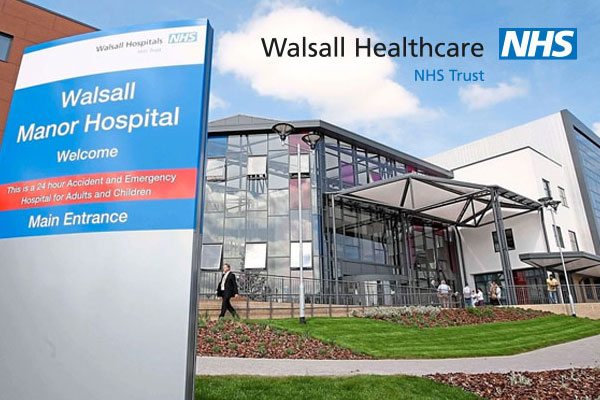Visitors to Walsall Manor Hospital can join staff to discover their blood type and potentially play their part in saving lives across the borough’s communities.
The Plasma of Hope charity supports people living with genetic blood disorders such as Sickle Cell and Thalassemia, as well as survivors of associated complications including stroke and other health issues resulting in disability.
It aims to raise awareness about blood donation and improve access to life-saving, ethnically matched blood types, particularly for patients with genetic blood disorders.
It is working in partnership with Walsall Healthcare NHS Trust and NHS Blood and Transplant to stage a “What’s Your Blood Type?” testing event tomorrow (Wednesday 11 June) at the hospital. This session is being supported by the Trust’s BAME Staff Network and follows previous successful events.
Angela Cope, Staff Network and Equality, Diversity and Inclusion Manager at the Trust, said: “In 2023 we worked in collaboration with Mariec Kofi from Plasma of Hope to offer people the opportunity to have a finger prick test to identify their blood type.
“Individuals were then able to sign up to donate blood and plasma. We had a fantastic turn out and just under 60 people signed up to give blood – a much-needed boost to stocks as just one donation can save up to three lives. So, we’re pleased to be able to offer another session with Plasma of Hope tomorrow and look forward to meeting potential donors.”
National Blood Transfusion Week is running now, until 15 June, and this Walsall session is available from 8am-3pm, in the main atrium of the hospital.
For many patients, especially those with sickle cell disease, ongoing access to rare blood subtypes such as RO is critical.
“The RO subtype is urgently needed in the UK, especially among patients of African and Caribbean heritage,” said Marie-Claire Kofi, Founder and CEO of Plasma of Hope.
“Through campaigns like What’s Your Blood Type? (WYBT), we aim to educate, empower, and connect people with an opportunity to become lifesavers in their communities.”
With more than 15,000 people living with sickle cell disease in the UK and more than 300 babies born with the condition each year, access to regular blood transfusions remains a critical part of treatment and crisis prevention. The WYBT event creates a welcoming space for members of the public and healthcare staff to take meaningful action.

